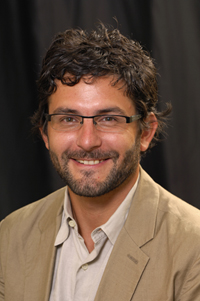Having administered and graded my last final exam yesterday, I am now officially on Summer break! My immediate plan is to work on my upcoming Fall 2014 course, "Religion in Southern Culture," before I travel to Worcester, MA for a month fellowship at the American Antiquarian Society.
For the past week, I have been reading several great books for "Religion in Southern Culture." I have taught this course once before at UTC, but I want to make some substantial revisions. While I hope to have lots of good discussion on various topics pertaining to religious life in the South, I determined that I should give some lectures that will complement the class reading list.
So far, I have narrowed down the required reading list to the following books: Christine Heyrman's
Southern Cross: The Beginnings of the Bible Belt, Albert Raboteau's
Slave Religion: The 'Invisible Institution' in the Antebellum South, Randall Stephens's
The Fire Spreads: Holiness and Pentecostalism in the American South, Charles Reagan Wilson's
Judgment and Grace in Dixie: Southern Faiths from Faulkner to Elvis, and
The New Encyclopedia of Southern Culture, edited by Samuel Hill
. I am also considering Mark Noll's
The Civil War as a Theological Crisis and Charles Marsh's
God's Long Summer: Stories of Faith and Civil Rights.

I was surprised how much I enjoyed reading the entries in
The New Encyclopedia of Southern Culture. I liked the idea of having the students learn several topics and key people who have influenced religion in the South. I have yet to figure out, however, how to use this book in my course. I may create online quizzes for each of the entries and require the students to complete these during stages in the course, and/or have them choose a topic in the
New Encyclopedia and write a research paper and/or present on that subject.

I had a difficult time choosing among so many excellent books on Religion in the South. I love Cynthia Lynn Lyerly's
Methodism and the Southern Mind, 1770-1810, but ultimately concluded that it would be best to integrate the material in this book, and related information on the Baptists in the South, into some lectures that correspond with readings from Heyrman's
Southern Cross. I had a similar problem when considering whether to choose Stephens's
The Fire Spreads or Ralph Hood's
Them That Believe: The Power and Meaning of the Christian Serpent-Handling Tradition. Hood teaches at UTC, is an expert on the snake handling tradition in the Appalachian region, and has appeared on several documentaries. Although the snake handling tradition has roots in the Chattanooga area, and may be more exciting to students than a general study of Pentecostalism in the South, I decided that it would be better to have them read Stephens's engaging book, and to limit our discussion to snake handling in the South to a single lecture.

On African Americans in the South, I struggled again to limit the class reading to one book. I debated using
Come Shouting to Zion: African American Protestantism in the American South and British Caribbean to 1830, by Sylvia Frey and Betty Wood
, as well as Paul Harvey's new book,
Through the Storm, Through the Night: A History of African American Christianity. But I decided to go with Raboteau's
Slave Religion, and use the material in Frey, Wood, and Harvey for complementary lectures on the subject of African American religion in the South.

I found the essays in Wilson's
Judgment and Grace in Dixie incredibly interesting, and so I couldn't resist adding this book to the required reading list. The variety of essays that he offers on topics ranging from the "Lost Cause" myth to the subject of "Sacred Southern Space" appealed to me. I found his chapter on "The Death of Bear Bryant" particularly interesting.
Finally, I want to heed the
advice of ESRH commentators and consider incorporating Erik Gellman's and Jarod Rolls's
The Gospel of the Working Class, essays in Mike Pasquier's edited volume,
Gods of the Mississippi, Tracy Thompson's
The New Mind of the South, as well as various essays in the
Journal of Southern Religion.
As one can see, I have a lot of work to do in the next month. Hopefully, in the next few weeks, I will have a good idea of how to teach "Religion in Southern Culture" this Fall.
 Prankster, painter, entrepreneur, sailboat owner, and philosopher Adam Konopka will be the final speaker in UTC's LeRoy Martin Distinguished Lecture Series for the 2014-2015 academic year. Adam holds the Besl Family Chair for Ethics/Religion and Society at Xavier University in Cincinnati, Ohio.
Prankster, painter, entrepreneur, sailboat owner, and philosopher Adam Konopka will be the final speaker in UTC's LeRoy Martin Distinguished Lecture Series for the 2014-2015 academic year. Adam holds the Besl Family Chair for Ethics/Religion and Society at Xavier University in Cincinnati, Ohio.